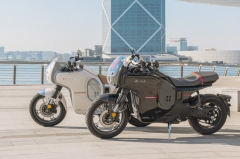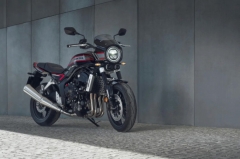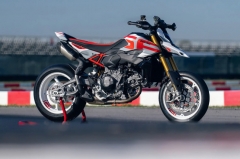Is the motorcycle industry facing an ABS sensor shortage?
The supply shortage brought about by recent events once again rears its ugly head.

Technology on motorcycles is undoubtedly one of the coolest and most exciting aspects of the two-wheeled lifestyle. The good old motorbike has transformed itself from a humble two-wheeled vehicle to a rolling computer equipped with decades’ worth of research and development. There is, however, a downside to this.
With more technology comes more parts. With more parts, comes the possibility of more things to go wrong—both on the user and manufacturer’s side. This is exactly the case at present, where the automotive and motorcycle industries, as well as other consumer goods industries, have been suffering from supply shortages. Everything from companies grinding production to a halt as a result of the COVID-19 pandemic, to actual raw material shortages, and yes, that time a massive container ship got stuck in the Suez Canal, have contributed to the snowball effect which has resulted in this issue plaguing multiple industries.

This time around, the issue presents itself in the form of ABS sensors. Now, ABS is one of the most revolutionary safety technologies to ever make its way to the motorcycle world. Back in the 90s and early 2000s, ABS on a motorcycle was all but a foreign concept. These days, however, it’s as ubiquitous as LED lights, so much so that even entry-level motorcycles have ABS as standard. Texas Instruments, also known as TI, reported that it has experienced difficulties in keeping up with demand for ABS sensors, specifically because of a shortage of raw materials such as certain types of alloys.
Given this shortage, several manufacturers who rely on other companies such as TI for their parts will have to adjust their production schedules to account for the decreased supply in parts. This further adds to the already long waiting list for some mid to high-end two-wheelers which rely heavily on these sensors in order to operate. To make matters even worse, other systems such as Traction Control and Electronic Stability Control sometimes depend on inputs from the ABS module, further emphasizing the importance of this diminutive, often overlooked component.
If the last two years can be used as a testament of what’s to come, however, then chances are the industry will find ways to adapt and overcome the problem. With restrictions surrounding the pandemic now gone in most places, work in factories and raw material refineries is picking up once again, so hopefully the industry will soon be able to recover from these shortages.
Tagged Under
Related Articles
-
Honda launches E-VO electric motorcycle exclusive to China, for now / News
Honda has pulled the covers off the E-VO, a fully electric futuristic motorcycle in the Chinese market.
-
Yamaha is developing advanced anti-dive suspension technology / News
Yamaha is working on an advanced electronic suspension system with anti-dive properties for both track and street use.
-
LTFRB to halt expansion of motorcycle taxis in NCR / News
The LTFRB has announced that it’s putting a stop to the expansion of motorcycle taxis within Metro Manila.
-
Motociclista Scatola Inc. takes over Royal Enfield distribution in the Philippines / News
Motociclista Scatola Inc. also known as Bikerbox has taken over local distributorship of Royal Enfield.
-
CFMOTO unveiled an all-new 675cc three-cylinder engine at EICMA 2023 / News
At EICMA 2023, CFMOTO surprised the world with an all-new 675cc three-cylinder engine.
Latest News
-
Take a look at the new Honda CB1000F / News
Honda has revealed the production-spec CB1000F, blending retro style with Hornet-based performance and modern tech. Expected to hit UK showrooms in early 2026.
-
Ducati launches all-new Hypermotard V2 with cutting-edge tech / News
The Hypermotard V2 keeps its aggressive stance and signature beak while bringing sharper design and modern electronics.
-
2026 Kawasaki Z650 S gets more aggressive styling and premium tech / News
The 2026 Kawasaki Z650 S adds new styling, updated tech, and the same dependable 649cc engine loved by middleweight riders worldwide.









